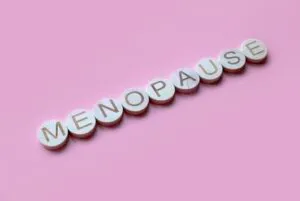Could Bacteria Improve Your Health?
With so many health tends out there, it can be tough to separate fact from fiction. One of the latest nutrition crazes sweeping the industry is probiotics. You might have heard high praise for probiotics, which are live bacteria and yeasts designed to clean up your gut, but does the product live up to the hype? In short, yes, probiotics can alleviate pain and discomfort for a variety of problems. How much you should consume and which type depend on your personal needs.
What is a probiotic?
The word “probiotic” literally means “for life.” Probiotics are live cultures or bacteria commonly found in fermented foods, including kimchi, sauerkraut and yogurt. These bacteria occur naturally, and while you might shudder at the thought of bacteria in your food, it’s a helpful kind of bacteria that balances out bad bacteria in your body. There are several different types of probiotics, but most fall into two categories:
- Lactobacillus
- Bifidobacterium
Lactobacillus is primarily found in fermented foods like yogurt, and it’s a common probiotic. Less common but still readily available is Bifidobacterium, a probiotic found in dairy products. Both of these groups offer a bevy of benefits to people suffering from various medical ailments, particularly digestive problems.
Can probiotics cure what ails me?
Research isn’t entirely clear on the benefits of probiotics, but they have been shown to help with a number of medical conditions. As with any supplement or nutritional component, individual results will vary. Probiotics are unlikely to cure diseases, but they can alleviate symptoms and make problems easier to handle. Probiotic supplements may help with:
- Eczema
- Dental health
- Yeast infections and vaginal health
- High blood pressure
- Irritable bowel syndrome
- Respiratory infections
Infants have also responded well to probiotics. If you have a little one who suffers from colic or digestive issues, then choosing a formula with probiotics can ease her tummy troubles as can offering pediatrician-approved probiotic drops to her diet.
How do I find probiotics?
Probiotics can be found in a variety of packaged foods, including most yogurts and fermented products like sauerkraut. If you want or need to try different strains, then you can also find probiotic supplements at health food stores, drugstores and credible websites that sell health supplements. Do your research carefully to determine if a site that’s selling probiotics is legitimate. One increasingly popular way to get probiotics is by ordering them from a consultant who sells them, but again, you’ll want to check out the consultant’s background if you don’t know her personally.
Keep in mind that probiotics have little to no effect on some people, and they aren’t a cure-all for every medical problem. Research is mixed about the benefits of these popular bacteria. If you suffer from medical problems, particularly digestive ones, then they may improve your ability to eat and maintain a healthy lifestyle. Always talk to your doctor first before starting a new diet regimen. He can prescribe specific probiotics based on your needs while monitoring your progress.
Sources:
https://www.webmd.com/digestive-disorders/features/what-are-probiotics#1
https://www.healthline.com/health/probiotics-and-digestive-health/suprising-benefits-probiotics#overview1




